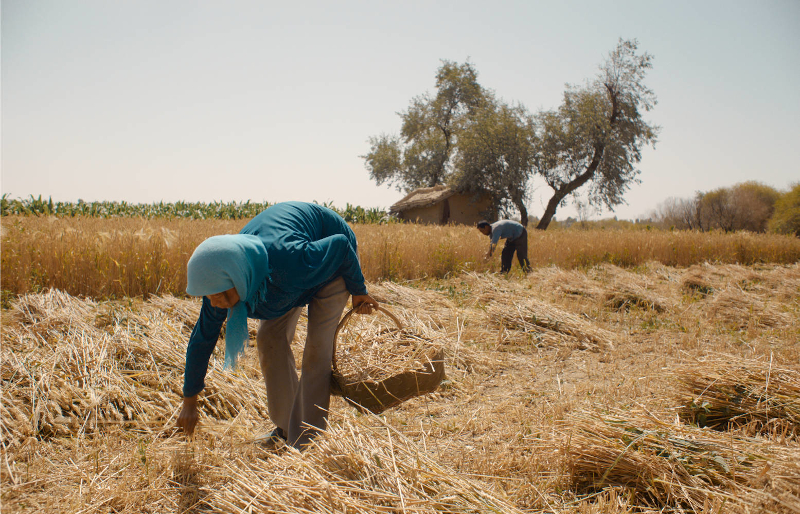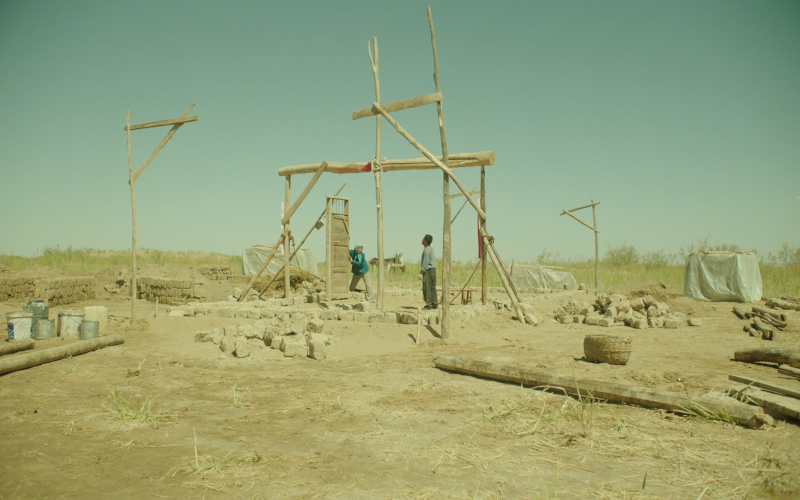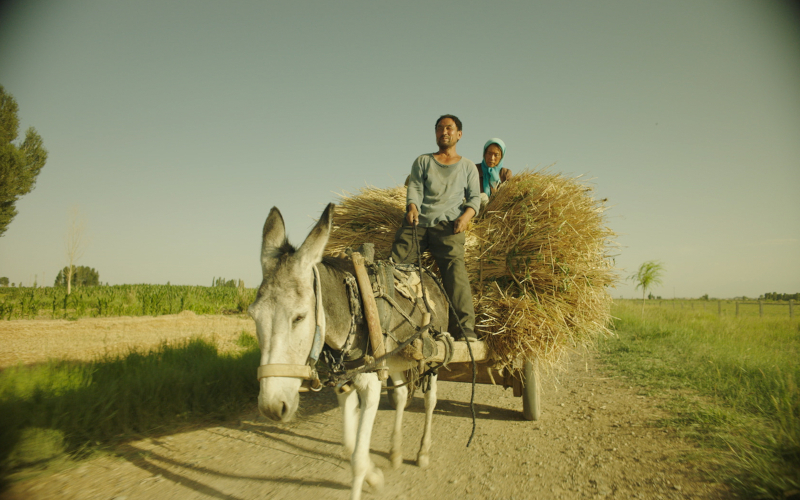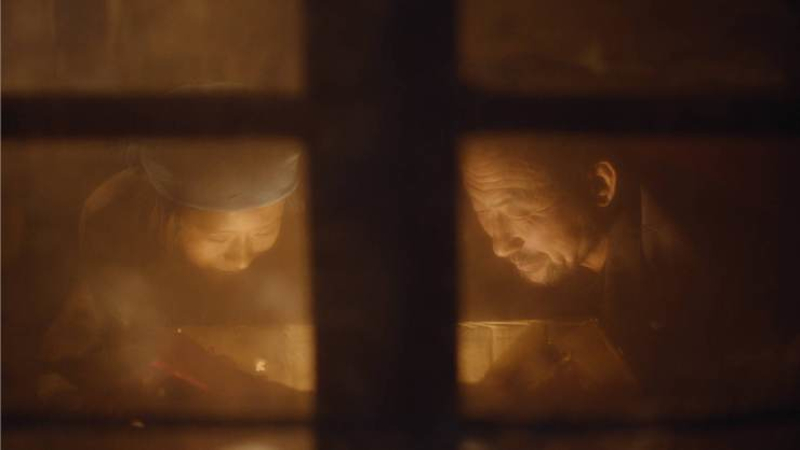Director – Li Ruijin – 2022 – China – Cert. PG – 133m
***1/2
When two misfits are put into an arranged marriage by their respective, concerned families, a kindly, gentle relationship blossoms – out in UK cinemas Friday, November 4th following its screening in the 2022 Edinburgh Film Festival
His family are worried about Iron Ma (Wu Renlin), also known as fourth brother. He seems content to live off his little piece of land tilling it with his donkey to grow crops, and raising pigs and chickens. He is less ambitious than third brother, who runs the local market and sets the prices for which crops are bought off local farmers. Third brother has done well for himself, and drives around in a flashy car. By way of contrast, Ma gets around by walking, or donkey and cart if he has produce to transport.
Her family are likewise worried about Cao Guiying (Hai Qing), a shy woman who can’t control her bladder. Both Ma and Cao’s respective families view their offspring as a liability and want to get them married off as soon as possible, not least to get out of being responsible for them. So they arrange a marriage for the pair of them to get them off their hands.

But then, the impossible happens. Although Ma is held in low esteem, he cares deeply for his donkey and other animals in his care, and Cao finds herself attracted to this, believing he’d make a good husband. It’s possible she’s the only member of her family who sees this quality in him. Nevertheless, her judgement here is spot on and as the married couple live together, in harsh and impoverished conditions, they fall deeply if simply in love.
With its slow pace derived from the seasonal rhythms of an impoverished farmer’s harsh life, this plays out as a series of events – planting and harvesting corn (maize), feeding chickens, rearing pigs (not very much of that – the pigs barely appear and would seem to have been too much for the production’s budget beyond the odd few days).

The authorities apply constant pressure for the slum in which the couple live to be bulldozed – which is fine, because Ma with the help of Cai constructs a much larger home by baking bricks in the sun and rolling a pre-constructed thatched roof over the top. Not content with that, however, the authorities also seem determined to make poor people move out of such accommodation into purpose-built apartments in housing blocks in the nearby town. (Whether that might be to improve their lot or to monitor and control them more easily is a moot point, something the film never really explores, choosing merely to place this issue on its narrative margins).
Ma is concerned about acquiescing, wondering what he’ll do with his donkey, pigs and chickens, but in the end he makes the move. The scene where he sets his donkey free is deeply moving – it has no idea what’s happening and wants to follow him, despite its former life as a beast of burden. Equally moving is the sight of the home the couple have so lovingly built being bulldozed, whereas his new apartment, while undeniably more modern and providing better protection against the elements, lacks the love and care with which the couple’s previous home was built.

There’s a strong sense of the honest and hard-working Ma being ripped off by the ambitious and profit-driven third brother, whilst Ma regards him with genuine if misguided benevolence. He finds himself uneasy about being the only possible blood donor for a local man in the hospital, but in helping him he finds himself held in good standing by the local community and Party officials, yet you sense that they are more concerned in promoting their egalitarian agenda than they are about the well-being or particular needs of oddballs like Ma and Cai.
The most impressive element here is the study of the relationship between the two married partners as they go abut the simple and necessary tasks of farming life. When, in the end, tragedy strikes the couple, it almost feels like an unnecessary dramatic device to bring the narrative to a close. The many scenes prior to that, of the couple just getting on with life – which at one point include him berating her as useless when she can’t manage to pitchfork hay onto a cart like other farmer’s wives and at another have him caring for her when she falls ill with a fever – are what makes the film worth seeing, just a very simple and highly effective portrait of two people in love. This is a deeply affecting couple’s movie.
Return To Dust is out in UK cinemas Friday, November 4th following its screening in the 2022 Edinburgh Film Festival.
Trailer:
2022
UK Release: Friday, November 4th.
Festivals: Edinburgh Film Festival.
